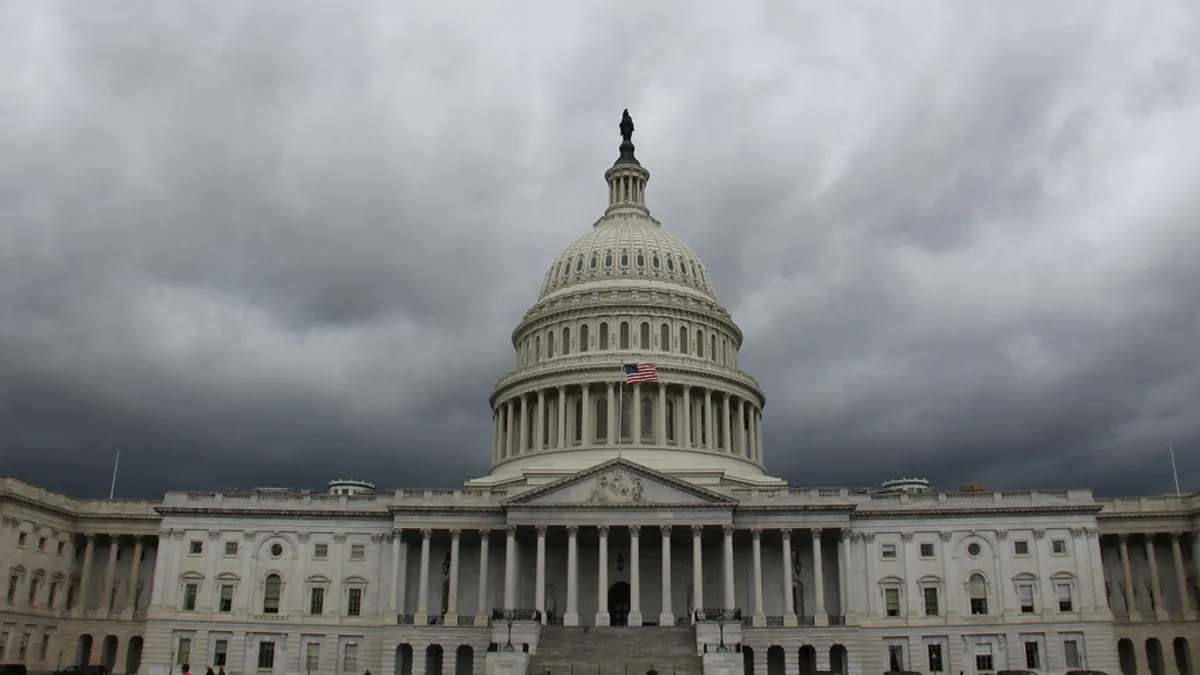Dive Brief:
- Federal CIOs came under the fire during a House Oversight and Government Reform IT Subcommittee hearing on Capitol Hill Wednesday to discuss the most recent Federal Information Technology Acquisition Reform Act (FITARA) scorecard. Overall, only three agencies saw grade improvements while 15 remained stagnant and six declined.
- Software licensing was added to the scorecard, with an exhaustive list of 17 of the 24 graded agencies receiving an 'F' score. The failure is a cause for alarm because it indicates that agencies are unaware of what is in their networks, according to David Powner, IT director of the Government Accountability Office.
- Ultimately, Rep. Will Hurd, R-TX, wants to see FITARA scoring reflect "digital hygiene." Overall, agencies performed at a 'C' level while the USAID was the only agency to receive an 'A-' grade after improving from a 'D+' in December 2016.
Dive Insight:
The FITARA scorecard should serve as a model for corporate CIOs. Though private sector CIOs do not have to commit to government best practices, FITARA's intent, granting federal CIOs the authority they are dutifully entitled to, is universal.
The majority of the hearing focused on data center optimization and transitioning to the cloud. But the cloud is old technology, and agencies should have it implemented, according to Hurd. Yet agencies struggle with its implementation, save for the Department of Education and the Department of Housing and Urban Development.
The staggering number of data centers still in use in federal IT is a testament to the "laggard"-like reputation federal IT has. The Department of Energy (DOE) currently has 289 data centers it wishes to modestly reduce by 11, but "progress is not in the forecast" with such a small goal, said Rep. Gerry Connolly, D-VA.
The approval of the FITARA extension, the Modernizing Government Technology Act, will hopefully enable agencies restrained by funding to better propel modernization as it serves as a reservoir of funds only accessible by federal CIOs. But the act has a time cap, which makes "identifying savings" a challenge in that timeframe, according to Alison Doone, the acting CFO at the DOE.
The lack of talent is a mirrored limitation between the two sectors. But while both sectors are free to enlist third party contractors, having the people to oversee that workforce stalls innovation for the federal government. To combat the skills gap, Hurd suggests a loan-like program where private sector employees could be periodically outsourced to the government.













